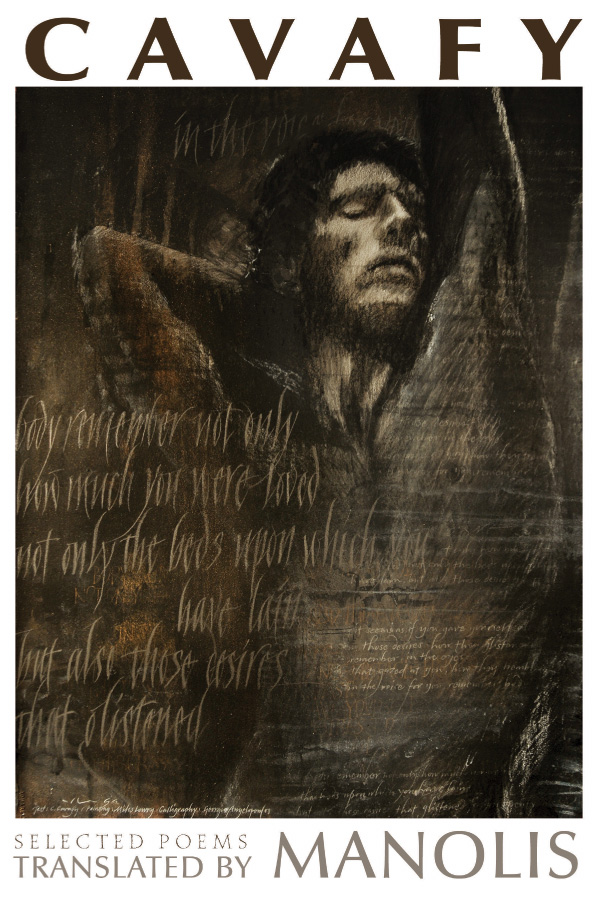Constantine
P. Cavafy
translated
by Manolis

We have
to be careful not to be swept away by what we like to see and read because the
deceptive old man of the Alexandrian Sea Cavafy, like Proteus who always eluded
capture by changing his appearances, often changes his style and mood, therefore
we can not take with face value the superficial meaning of his words or the dialectic
vices he often uses.
~ George Seferis
He
has the strength (and of course the limitations) of the recluse, who, though not
afraid of the world, always stands at a slight angle to it.
~ E. M. Forster
What,
then, is it in Cavafy’s poems that survives translation and excites? Something
I can only call, most inadequately, a tone of voice, a personal speech. I have
read translations of Cavafy made by many different hands, but every one of them
was immediately recognizable as a poem by Cavafy; nobody else could possibly have
written it.
~ W. H. Auden
He
wrote consistently but almost never published through traditional means. There
is nothing more detrimental to art, he maintained, than succumbing to “how
the public thinks and what it likes and what it will buy.”… Whether
Cavafy is describing an ancient political intrigue or an erotic encounter that
occurred last week, his topic is the passage of time.
~ James Longenbach,
in “A Poet’s Progress” in the New York Times (17 April
2009)
Constantine P. Cavafy remains one of the towering figures in poetry of the past 100 years, considered the equal of Yeats or Rilke. Although his output was small (only 200 poems in his “complete works”) he has had an enormous impact on later generations of poets. His reputation was built on two divided currents: his historical poems, reclaiming Grecian antiquity; and his more personal, erotic poems of memory and desire, passion and loss –– both, however, infused with a tone of irony and disenchantment. Sensuous, erotic, exact Cavafy does not so much tell a story as create an atmosphere, sweeping the reader away on a blue Aegean sea of longing. The endurance of his work is in his approach, embodying both the immediacy of the Hellenic past and the direct moment of an imagined erotic encounter. Cavafy remains balanced between the ancient and the modern, and among the most important Greek poets of the modernist era. Manolis, a Greek poet originally from Crete, has rendered into English the poems of Cavafy with easy grace and lyric intensity, to transcend the natural barrier of translation and to give the poems a home in English. This edition of Cavafy, a selection from the larger canon of Cavafy’s Complete Works, with Greek en face, is of interest to both scholars and to the general reader who might be interested in the form and content of the original.
About the Translator
Manolis was born in the small village Kolibari west of Chania on the Greek island of Crete in 1947. At a young age his family moved first to Thessaloniki and then to Athens where he was educated, achieving a Bachelor's Degree in Political Science at Panteion Supreme School of Athens. He served in the armed forces for two years, and emigrated to Vancouver in 1973, where he worked in several different jobs over the years.
He attended Simon Fraser University for a year, taking English Literature in a non-degree program. He has written three novels, a large number of collections of poetry, which are slowly appearing as published works, various articles and short stories in Greek as well as in English. After working as an iron worker, train labourer, taxi driver, and stock broker, he now lives in White Rock where he spends his time writing, gardening, and traveling.
Towards
the end of 2006 he founded Libros Libertad, an unorthodox and independent publishing
company in Surrey, BC, with the goal of publishing literary books. His latest
books are Vernal Equinox (Ekstasis Editions) and Vortex (Libros Libertad).
Poetry
152 pages
$22.95
6 x 9
Now Available
customers
customers
customers